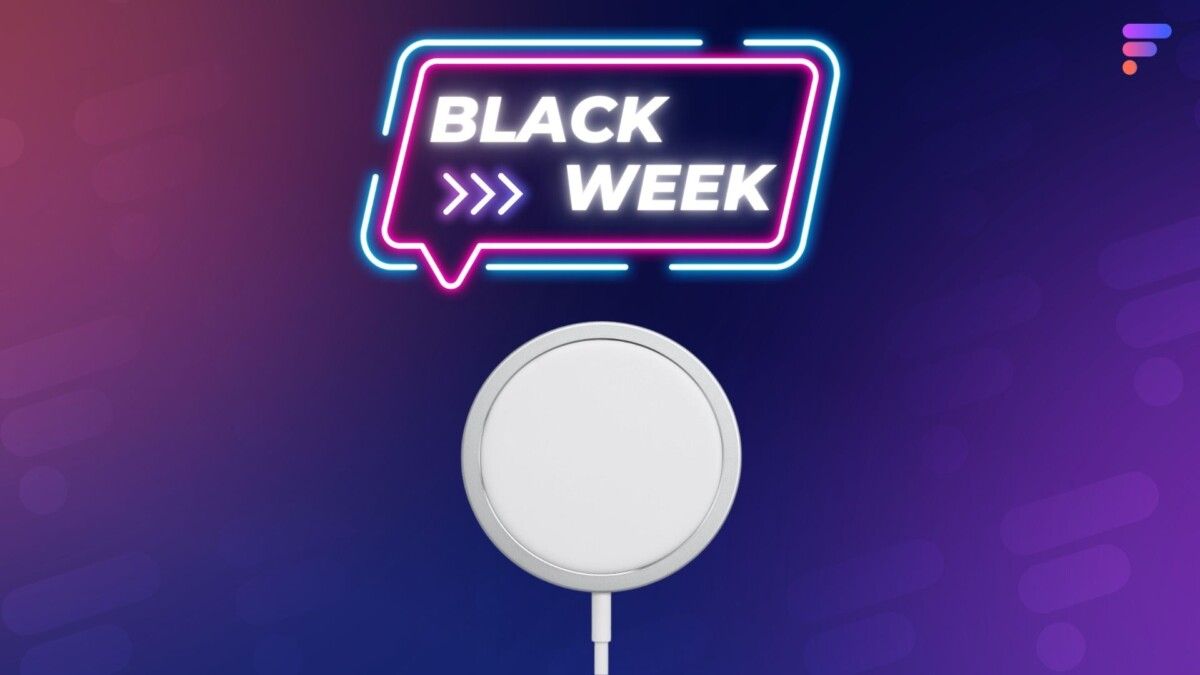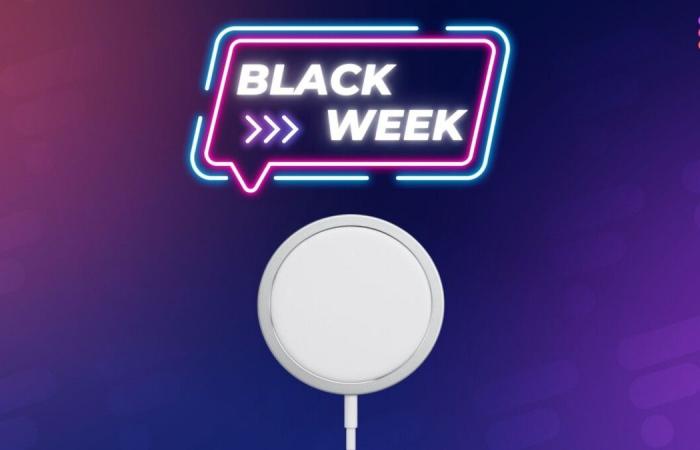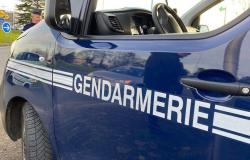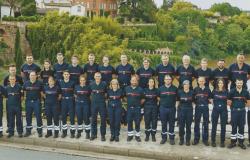Do you want to treat yourself to an Apple product, which is usually too expensive? That's good, thanks to Black Friday Week, many products like MacBooks or certain iPhones and iPads are on sale. Here are the best deals that are worth checking out.
Apple products are renowned for being high quality and lasting over time. On the other hand, their high price is often a deterrent for most consumers. Fortunately, Black Friday Week is one of the rare times when you can acquire cheaper Apple products. We've selected the best deals available during the event on iPhone, AirPods, MacBook and Apple Watch.
The best Apple deals during Black Friday Week:
AirPods Pro 2 (USB-C)
If you want to acquire the best AirPods of the moment, you should take advantage of them during Black Friday Week. Between the high-quality sound performance and active noise reduction of the same ilk, the AirPods Pro 2 are unbeatable in their category and will surely be for a while to come.
Why choose Apple AirPods Pro 2
- The sound performance, simply excellent
- Top-notch active noise reduction!
- Features of the Apple ecosystem
Instead of the usual 279.99 euros, the Apple AirPods Pro 2 (USB-C) are offered for only 199 euros at Amazon.
Apple AirTag
The Apple AirTag is a very practical accessory, especially for dizzy people. This Bluetooth beacon allows you to find any object to which it is attached and is easy to use thanks to its integration into the Apple ecosystem. At Amazon, we find it on sale at 29 euros instead of 39 euros. It is even cheaper in sets of several.

What is the Apple AirTag used for?
- It is a discreet and easy to configure Bluetooth beacon
- Locateable well beyond 100 m
- Also works with the Find My app
- IP67 waterproof and battery life of approximately one year
Instead of the usual 39 euros, the Apple AirTag is now available on sale for 29 euros at Amazon. The sets of 2 and 4 AirTags are also on sale at the same merchant, at 58 euros and 89 euros respectively. This last offer is the best, since the unit price of an AirTag thus falls to 22.25 euros.
Apple Watch Serie 9
Not all Apple fans can afford to opt for the latest smartwatch of the firm, quite expensive. Those with a smaller budget can, for example, turn to the old model, the Apple Watch Series 9, which remains a very complete premium connected watch, and especially now that it drops to less than 300 euros.

What does the Apple Watch Series 9 offer?
- A large light panel
- The Double Tap function
- Effective GPS and heart rate tracking
Instead of 499 euros at launch, the Apple Watch Series 9 (45 mm, GPS) is now discounted at 329 euros at Boulanger.
iPhone 14 Plus




The best VPN for Apple devices
During Black Friday, the most efficient VPN on the market is slashing its prices like never before and offering 6 months of free subscriptions on top of that! The perfect VPN for iPhone, Mac and iPad
Apple has abandoned its Mini format in favor of a larger model like the iPhone 14 Plus. It turns out to be its complete opposite, with a larger screen and battery. During Black Friday Week, it trades at a much better price: less than 680 euros.

The iPhone 14 Plus and its advantages
- A very nice large screen for playing or watching things
- Unfailing power
- Solid autonomy
Starting at 1,169 euros, then reduced to 869 euros, Apple's iPhone 14 Plus (128 GB) is now available on sale for 679 euros on the Fnac website and the Darty website.
MacBook Air with M2 Chip
The MacBook Air 2022 is a portable PC of choice from Apple. It features the M2 chip, which has demonstrated its power and efficiency. And, if its starting price was a hindrance, today, the Apple laptop is much more recommendable, falling below 1,000 euros.

The strengths of the MacBook Air M2
- A well-calibrated screen
- The unrivaled performance/autonomy ratio
- A perfectly silent machine
Launched at 1,499 euros, the Apple MacBook Air 13 M2 2022 is currently available at 879 euros on darty.com.
iPad 10 2022
No need to break the bank to get your hands on an iPad. The latest models with the M4 chip are indecently priced, but entry-level iPads remain an interesting alternative if you are looking for a well-finished touchscreen tablet with an impeccable user experience.

What is iPad 10?
- A bright and well-calibrated screen
- A good user experience with iPadOS
- Excellent manufacturing quality
Instead of 589 euros at launch, and 409 euros currently, the Apple iPad 10th generation (64 GB) is priced at only 349 euros on Cdiscount. The tablet can also be found on sale for 359 euros on the Fnac and Darty website. It can also be found on sale on Amazon.
AirPods Max
If Apple is known for its wireless headphones, the AirPods range also contains Bluetooth headphones. The Max offers interesting build quality, but above all great sound performance. As always with Apple, the software integration is impeccable.

What we like about the Apple AirPods Max
- Very good quality sound
- Apple's software simplicity
- Good active noise reduction
The Apple audio headset is usually sold at 579 euros. During Black Friday Week, this is 499 euros at Boulanger.
The new version with USB-C is on sale for 552 euros, compared to 579 euros on Amazon.
Apple Watch Ultra 2
The Apple Watch Ultra 2 is a versatile connected watch, with of course sports functions, equipped with numerous sensors to help you monitor your health and track your progress and training. On the occasion of Black Friday Week, it becomes more interesting after more than 100 euros of discount.

The strengths of the Apple Watch Ultra 2
- Brightness can reach 3000 cd/m², 1000 more than Ultra 1
- 64 GB of internal memory for your apps and watch faces
- Using ultra-precise dual frequency GPS
While the Apple Watch Ultra 2 usually costs 899 euros, it is currently trading at 789 euros on the Boulanger website.
MacBook Air 2020 M1
The 2020 MacBook Air M1 is an ultrabook that may date from four years ago, but it still remains very competitive today. Find it right now for less than 850 euros during Black Friday Week.

What to remember about the MacBook Air M1 (2020)
- The M1 chip still does a good job
- It runs in absolute silence
- It is particularly compact and relatively light
Released in 2020 at 1,129 euros, the MacBook Air M1 is now offered at only 849 euros on Cdiscount.
Chargeur MagSafe
One of the important accessories with the iPhone is the charger! For several years, there has been MagSafe technology and if you want to take advantage of it, Apple's basic wireless charger is 24% off.

What is the MagSafe charger?
- A wireless charger compatible with iPhones from 12
- Wireless charging optimized compared to induction chargers
- Connects via USB-C
The usual price for this charger is 49 euros. During Black Friday Week, Apple's MagSafe charger is priced at 37 euros on Amazon.
So you don't miss any Black Friday deals
Yes, Black November started at the beginning of November for the majority of e-retailers. It's now time for Black Week, this week of promotion that precedes Black Friday. Another great opportunity for those who don't want to wait until the last moment to do their end-of-year shopping at reduced prices.
In order not to miss the different Tech offers that we highly recommend during this period, here are some product selections:
By merchants:
By categories:
By brands:
Here are also some other very useful tips:
- Follow us on our X account (formerly Twitter) @FrandroidPromos dedicated only to good deals (remember to activate the bell to receive notifications in real time)
- Join our WhatsApp channel to receive a summary of the best offers once a day
- Download our Frandroid application (available on iOS and Android) to activate notifications from the “Good Deals” category and thus receive new articles related to Black Friday in real time
- Subscribe to our newsletter to be sure to receive preview offers (no more than one email per day, unsubscribe in 1 click, no distribution to third parties):
Frandroid Bons plans
It's recorded! Watch your mailbox, you will hear about us!
Don't miss any good deals with our newsletter
The data transmitted via this form is intended for Humanoid, the publisher of the Frandroid site in its capacity as data controller. They will under no circumstances be transferred to third parties. This data is processed subject to obtaining your consent to send you by e-mail news and information relating to editorial content published on Frandroid. You can object to these emails at any time by clicking on the unsubscribe links in each of them. For more information, you can consult our entire policy for processing your personal data. You have a right of access, rectification, erasure, limitation, portability and opposition for legitimate reasons to personal data concerning you. To exercise one of these rights, please make your request via our dedicated rights exercise request form.
Our Twitch show SURVOLTÉSit's every other Wednesday from 5 p.m. to 7 p.m.: meet us to talk about electric cars or electric bikes, around debates, interviews, analyzes and games!


















